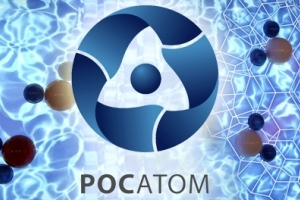Ru
|
Eng
Rosatom opens regional office in Dubai
05.04.2016

In an event held on the sidelines of the World Nuclear Fuel Cycle expo and conference in Abu Dhabi, UAE on April 4-6 the Russian state nuclear industry corporation Rosatom introduced its regional office to its partners and attendees of the World Nuclear Fuel Cycle. The regional office is located in Dubai and will serve as the company’s headquarters in the Middle East and North Africa region, Rosatom’s representatives told BelTA.
At the opening event, Alexander Merten, President of Rusatom International Network, commented: “Rosatom has a long and successful history of cooperation in the region. Starting from cooperation on research reactors projects in the 1960s, today we are conducting projects that include isotopes, natural uranium and enriched uranium supplies, radioactive waste management, as well as such large-scale projects as nuclear power plant construction. The opening of our regional office in the UAE is therefore a completely natural and logical step in the evolution of our cooperation with the companies of the Middle East. I am sure in addition to bolstering our partnerships on current projects it will also open up new opportunities for the implementation of mutually beneficial projects in other areas that are relevant for the region, including the non-nuclear field.”
The World Nuclear Fuel Cycle international conference and expo is a leading industry forum on nuclear energy and the nuclear fuel cycle. The organizers of the conference are The World Nuclear Association (WNA) and The Nuclear Energy Institute (NEI). Held with the active support of Emirates Nuclear Energy Corporation (ENEC), every year WNFC brings together industry leaders for a discussion of current issues related to the various stages of the nuclear fuel cycle, including uranium products supply, uranium conversion and enrichment, fuel fabrication and spent nuclear fuel management, and nuclear reactor decommissioning. Prospects of nuclear power in the Middle East and its role in the region’s energy mix will also be discussed within the framework of the conference.
Rosatom is taking part in the World Nuclear Cycle expo and conference with a united stand that showcases the company’s leading positions in the global nuclear energy market, including key figures on the international scale, and information on its current projects in the region and its integrated offer. As a fully vertically integrated company Rosatom offers its customers a full range of products and services in peaceful uses of nuclear energy. In addition to nuclear power plant construction, these include cutting-edge solutions in seawater desalination, nuclear medicine, isotope products, research reactors, and application of radiation technologies in agriculture and industry. Moreover, the company’s unique 70 years’ experience in the nuclear industry allows Rosatom to offer a range of non-nuclear services such as water treatment technologies, inspection systems, small hydropower solutions (compact hydropower plants), equipment for the petrochemical industry, and so on. Rosatom is the world's only complete nuclear power cycle company offering a range of services for the entire nuclear power plant lifecycle: from nuclear power plant construction, operation and decommissioning, fuel supply and solutions for spent nuclear fuel and radioactive waste management, to nuclear infrastructure development, providing flexible financial solutions, sharing technical knowledge and increasing public acceptance of nuclear power and more.
The first research reactors in the Middle East were built using Russian technologies: in Egypt in 1961, in Iraq in 1967, and in Libya in 1981. Today Rosatom is active in the region, implementing projects that include NPP construction in Egypt, Jordan and Turkey, constructing two new units of the Bushehr nuclear power plant in Iran, supplying natural uranium and enriched uranium for the Barakah nuclear power plant in the UAE; having contracts for isotopes supply with the UAE, Egypt and Iran; and implementing a project of developing a radioactive waste management facility in Iran. Intergovernmental agreements on cooperation in the peaceful use of atomic energy have been signed with Saudi Arabia and Algeria, and a memorandum of understanding for cooperation in peaceful uses of nuclear energy has been signed with Tunisia.
NEWSWIRE
17.07.2024
02.07.2024
27.06.2024
21.06.2024
19.06.2024
06.06.2024
06.06.2024
06.06.2024
06.06.2024
06.06.2024













